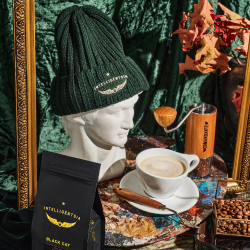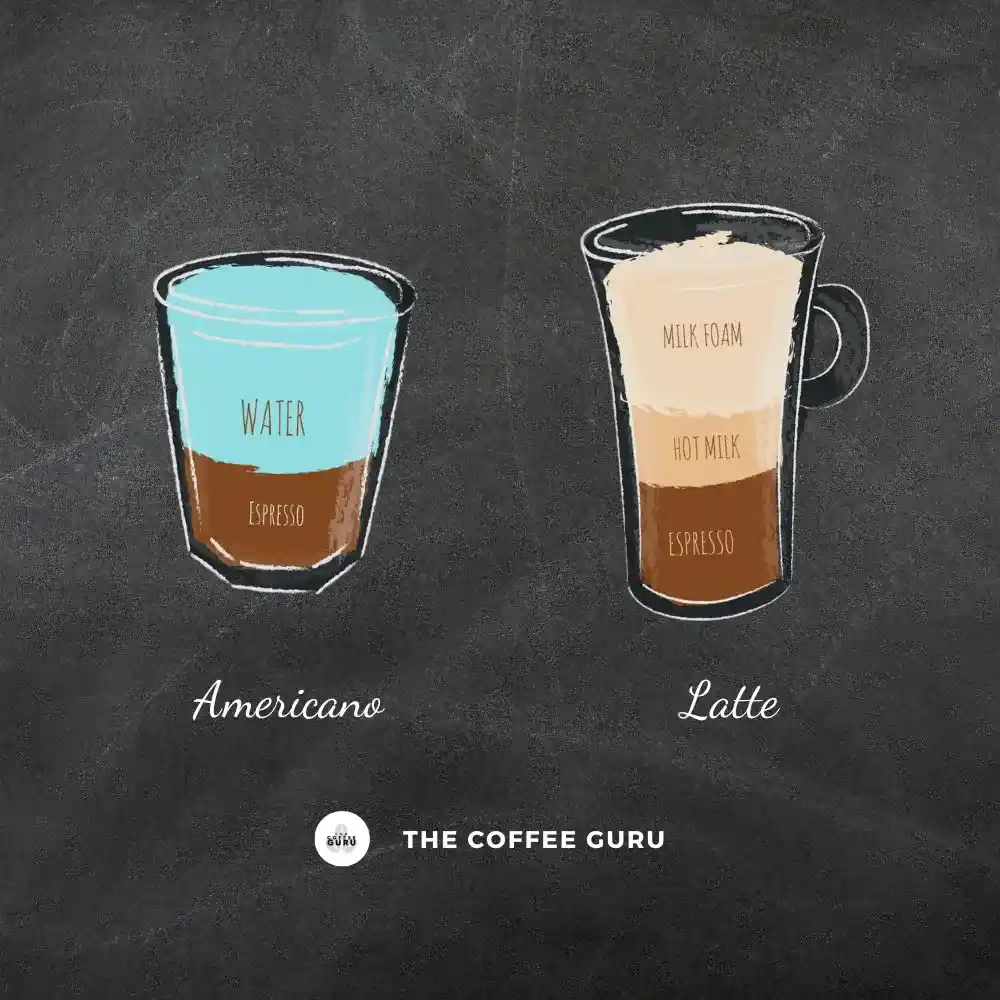In our modern world where a coffee shop can be found on nearly every street corner, it seems almost unthinkable that there was a time when this beloved beverage faced bans and prohibitions. But was coffee ever illegal? If you’ve ever pondered this question over your morning cup of joe, you’re about to embark on a fascinating journey into the history of coffee prohibition.
From being viewed with skepticism in early societies to inciting fear in religious and political establishments, this beverage’s journey to becoming a universal beverage is a rich brew of controversy, intrigue, and resilience. This article will peel back the layers of history to explore the various instances of the coffee ban across different cultures and eras, and how these attempts at banning coffee have shaped the beverage’s social, cultural, and legal standing in our contemporary world. So, sit back with your favorite brew, and prepare to uncover the truth about coffee prohibition.
Was Coffee Ever Illegal? – Key Takeaway
- Coffee Through the Ages: This lovely drink has a rich and complex history, and yes, it was indeed banned in various countries at different points in time due to religious, political, and social concerns.
- The Impact of Prohibition: The bans on coffee led to significant societal impacts, including public uproar, the rise of illicit trade, and the emergence of alternative beverages.
- From Banned to Beloved: Despite facing numerous prohibitions and controversies, this beverage has endured to become one of the most widely consumed drinks worldwide.
- The Evolution of Coffee Laws: Over the centuries, the legal status of this beverage has evolved from being subject to bans and restrictions to acceptance and regulation.
- The Future Brew: With current regulations focused on quality control, sustainability, and fair trade, this beverage continues to hold a significant place in global commerce and culture, demonstrating its resilience and adaptability.
The Emergence of Coffee and Initial Controversies
Coffee, a beverage cherished by millions globally, boasts an intriguing and tumultuous history. Its origin, early adoption, and the controversies it ignited lend to an enthralling narrative.
The Birth of Coffee: Origins and Early History
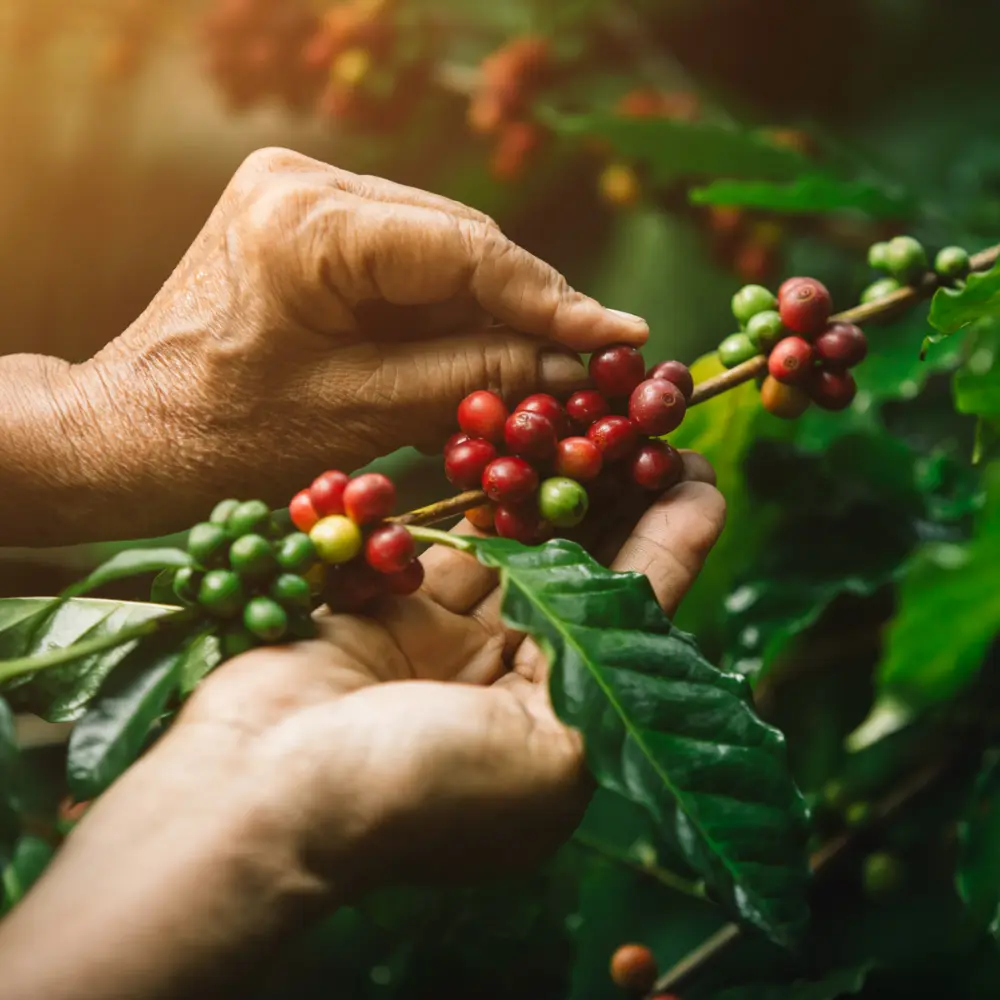
The tale of this lovely beverage begins in Ethiopia, where according to legend, a goatherder named Kaldi discovered the beans. He reportedly noticed his goats dancing excitedly after consuming cherries from a particular tree. Upon sharing this discovery with a local monk, the seeds of what we now know as coffee were brewed to create an invigorating drink that helped the monk stay alert during long prayer sessions.
From its humble beginnings in the Ethiopian highlands, this drink spread to the Arabian Peninsula through trade routes, where it garnered popularity as ‘qahwa’ or ‘that which prevents sleep’. The 15th century saw the establishment of the first coffee houses, or ‘qahveh khaneh’, in Yemen. These institutions served as a communal space where people gathered for socialization, entertainment, and of course, to relish the energizing brew. (1)
Coffee’s Cultural Impact in Early Societies
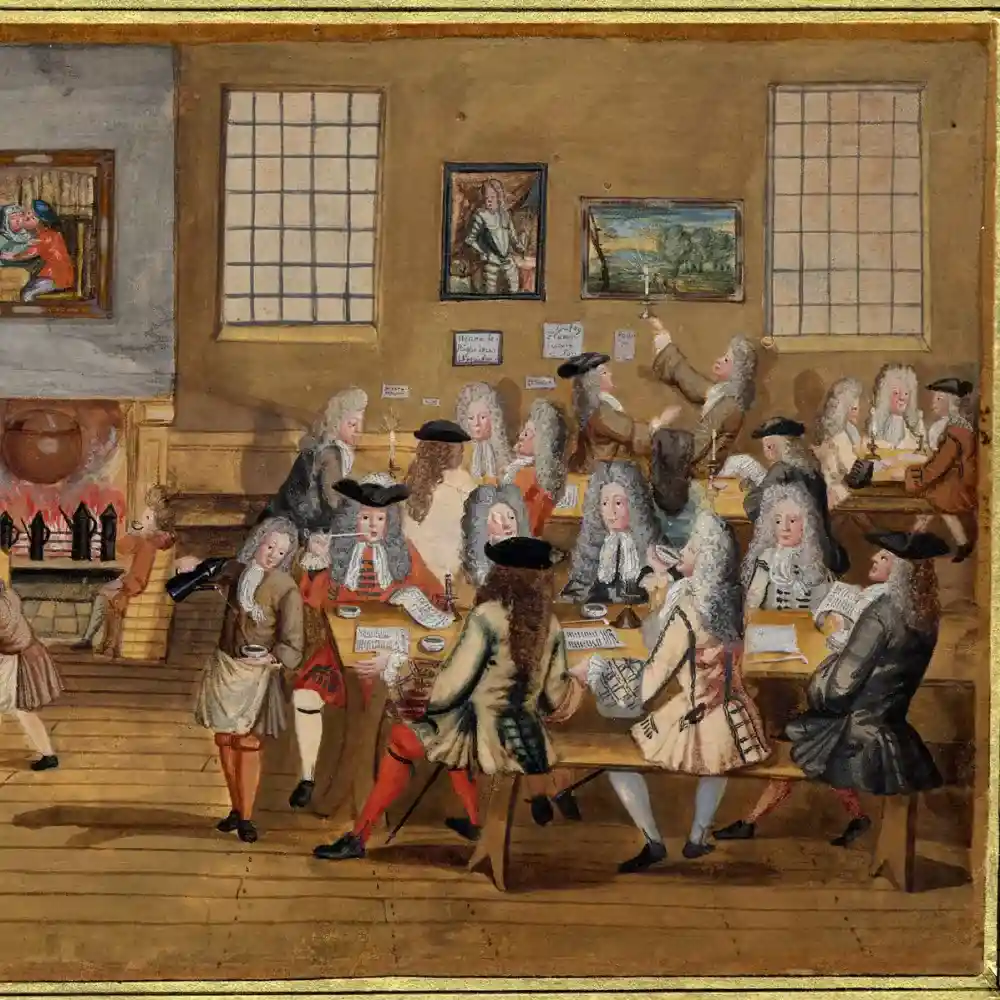
The adoption of this beverage wasn’t merely restricted to dietary practices. It wielded a profound impact on the sociocultural fabric of societies that embraced it. As discussed, in the Arabian Peninsula, the coffee houses or ‘qahveh khaneh’ served as a hub for conversation, intellectual exchange, and even political debate.
This cultural shift wasn’t limited to the Arab world. As this drink was introduced to Europe in the 17th century, coffeehouses, referred to as ‘penny universities‘, emerged as an epicenter of social and intellectual activity. From business transactions to philosophical discussions, these establishments played a key role in shaping the Age of Enlightenment.
Early Opposition and Criticism Against Coffee
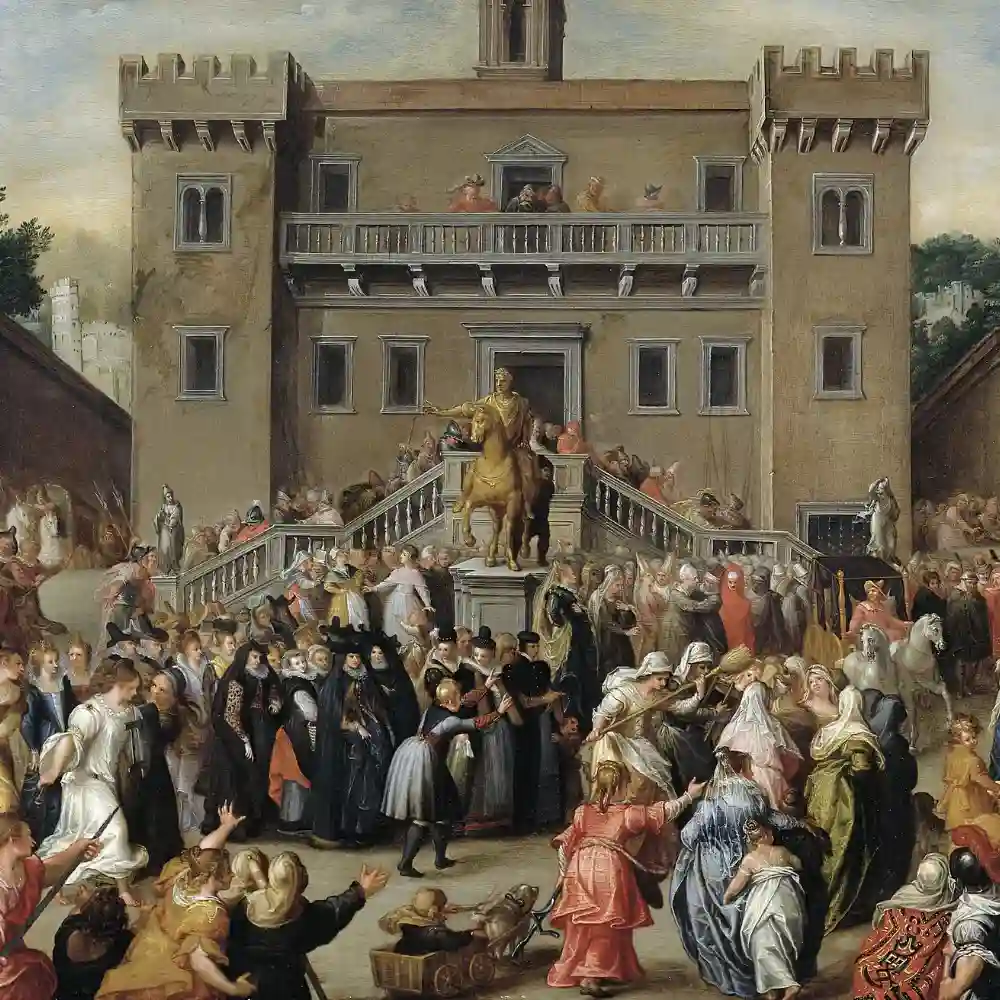
Despite its popularity, this beverage’s journey wasn’t free of opposition. In the 16th century, the drink faced significant criticism from religious groups within Mecca and Egypt, leading to its ban due to fears of its stimulating effect and the potential for political dissent in coffeehouses.
Similarly, in the West, this beverage faced considerable backlash, mainly from the alcohol industry which felt threatened by this new competitor. Upon its arrival in Europe, this drink was dubbed the ‘bitter invention of Satan’ by some, leading to its prohibition until Pope Clement VIII, intrigued by the beverage, decided to ‘baptize’ it, thereby approving it for Christian consumption.
The story of this beverage thus serves as an enthralling narrative of not only culinary discovery but also the societal impact of a single beverage, its controversy, and its subsequent acceptance as a staple across cultures worldwide.
Historical Attempts to Ban Coffee
As the popularity of coffee grew over time, so did its controversies. Throughout the history of this delectable drink, there have been numerous attempts by authorities and institutions to ban this beloved drink due to religious, political, and even economic reasons.
The Mecca Coffee Ban of 1511

One of the earliest known prohibitions of this beverage occurred in the city of Mecca in 1511. The governor, Khair Beg, noticed the beverage’s increasing influence and the social gatherings it facilitated. He feared that such meetings in coffeehouses might breed resistance against his rule. Additionally, religious scholars in his court argued that this beverage was a mind-altering substance and thus should be considered forbidden, or ‘haram’, in Islamic law.
Khair Beg decreed a ban on coffee, leading to the closure of coffeehouses and severe penalties for those found consuming the drink. However, this prohibition didn’t last long. The Sultan of Cairo was alerted about the arbitrary ban, and ordered an end to the prohibition, as he found no legitimate Islamic law that defined this drink as haram.
Egypt Coffee Ban

The introduction of coffee to Egypt in the 16th century sparked not only a change in consumption habits but also ignited cultural and political discourse. As Jonathan Morris details in his book “Coffee: A Global History,” Egyptian students at Al-Azhar were intrigued by their Yemeni counterparts’ practice of sipping a dark, intense beverage during intensive study sessions and religious rituals.
Motivated by curiosity, Egyptian students adopted this practice, hoping to harness the stimulating effects of the brew. It wasn’t long before coffee seeped into various religious customs, such as the Sufi ritual of dhikr, dedicated to the remembrance of God, and the religious festivals like mulid, a celebration of Prophet Mohamed’s birth.
The Rise of Coffeehouses and Authority Concerns
Over time, the consumption of coffee moved beyond the confines of homes and religious establishments, giving birth to numerous coffeehouses. These establishments not only made coffee more accessible to the masses but also became pivotal social centers where individuals could congregate, share stories, and engage in heated discussions over a cup of coffee.
The growing popularity of these coffeehouses and the congregation of people within them raised eyebrows among the authorities. Drawing comparisons between the social effects of coffee and alcohol, some authorities began questioning the permissibility of coffee. Prominent Islamic scholars like Sheikh Ali Ahmed Sonbati in 1572 argued that coffee, like alcohol, possessed intoxicating properties and should therefore be prohibited.
Attempts at Coffeehouse Prohibition and Lasting Influence

As coffeehouses grew more synonymous with social interactions than the beverage itself, Egyptian authorities attempted to regulate these establishments, fearing the nature of the discussions that unfolded within their walls. This marked the beginning of an attempted ban on coffeehouses in Egypt.
Despite these attempts, coffeehouses maintained their appeal, standing strong as social hubs in Egypt and across the Middle East. The rise of coffeehouses signified a transformation in societal norms, extending private hospitality into public spaces. This shift was particularly noticeable in the wake of increasing urbanization and migration, causing a lasting impact on the social and political fabric of the time. (2)
European Coffeehouse Culture Under Threat
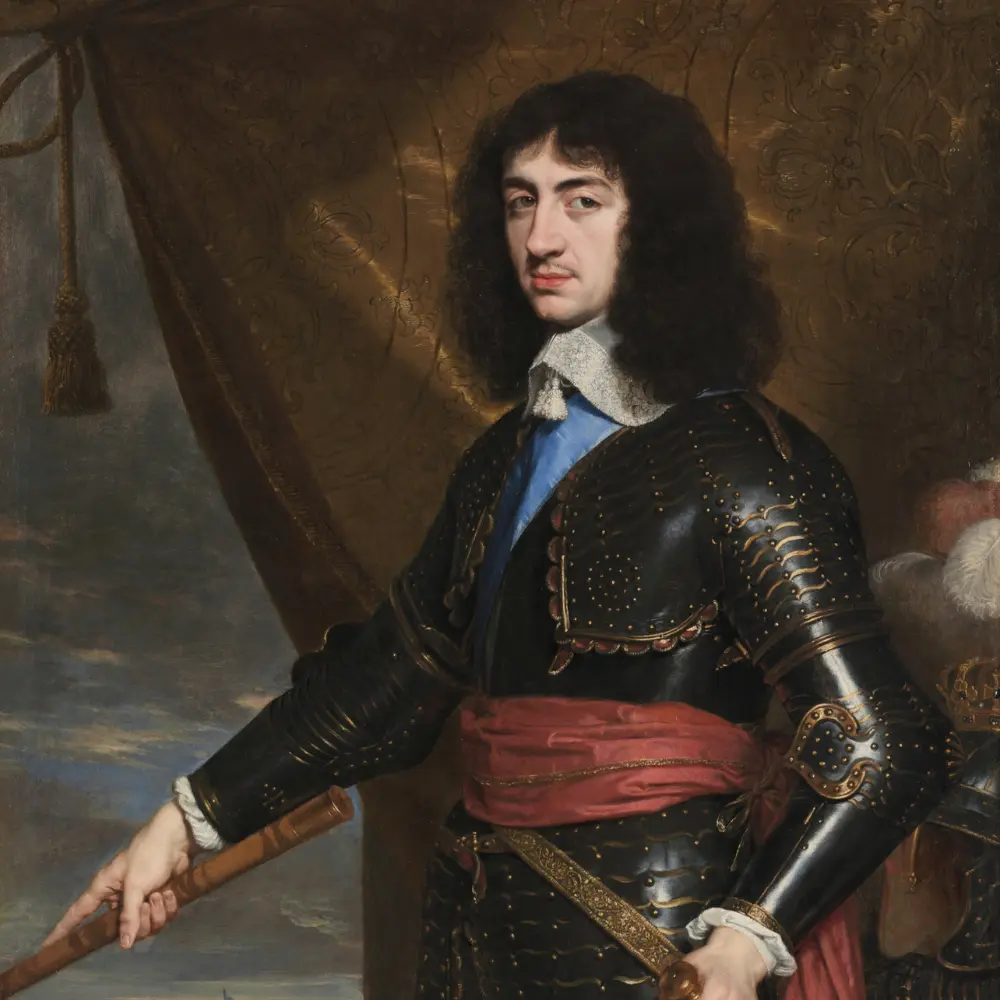
by Philippe de Champaigne
During the 17th century, the introduction of this intriguing beverage to Europe brought about profound changes in societal interactions. In major urban centers, coffeehouses rapidly emerged as the centers of intellectual and political conversation. However, this shift was not welcomed by everyone.
1674 Satire: The Coffee Gender Debate
One particularly memorable piece of satire from this period was “The Women’s Protest Against Coffee. Illustrating the Significant Drawbacks Experienced by Their Sex Due to the Excessive Consumption of This Drying, Weakening Drink. Presented to the Distinguished Protectors of the Freedom of Venus” (1674). The satirical work was filled with humorous innuendos, accusing this new beverage of turning English men into weaklings and hinting that the sociable male—the one who incessantly chatted in the coffee house—was lacking in potency.
The author branded the patrons of the coffee house as ‘effeminate’ for choosing to spend their time engaging in conversation, reading, and attending to their business rather than succumbing to revelry, drunkenness, and promiscuity, “men will soon out-talk women”. In retaliation, “The Men’s Rebuttal to the Women’s Petition Against Coffee…”, was published in the same year, 1674. This response defended the modern man—the coffee house frequenter—as someone who would go above and beyond to cater to women. It further argued that coffee, contrary to the popular perception, made men more vigorous.
In a parallel development in 1675, King Charles II of England endeavored to close down coffeehouses, viewing them as nurseries for political unrest. King Charles was apprehensive that coffee houses were fomenting political insurrection and encouraging excessive coffee drinking. His royal edict declared that coffee houses had led to alarming and dangerous outcomes, jeopardizing the peace and quiet of the realm. Despite the ban, the popularity of coffee only grew during Charles’s rule over England. By the time of his death in 1685, London alone was home to more than 2,000 coffeehouses. Hence, this drink had decisively secured its place as an integral component of English culture, a position it retains to this day.
The Ottoman Empire’s Coffee Prohibition
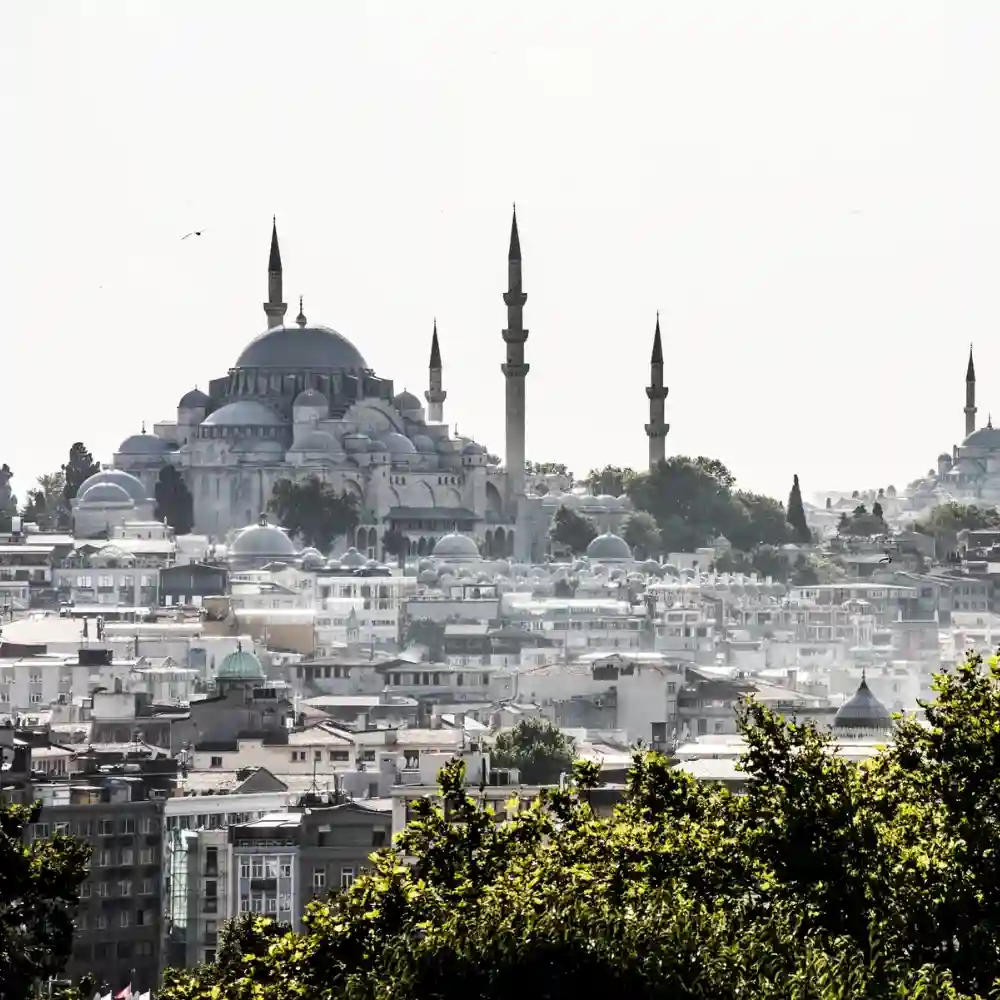
A dispute emerged in Constantinople, similar to the one in Egypt, regarding the consumption of coffee. Conservative Muslims sought its prohibition due to its stimulating effects and status as an innovation. During the reign of Süleyman and his successor, Şeyhülislam Ebussuud, the prominent religious authority among the Ottomans, issued a fatwa against drinking this beverage in 1543, as noted by Refik Ahmet Sevengil. Upon the arrival of ships carrying coffee beans, the bags were discarded into the sea in compliance with the fatwa. However, over time, the prohibition was largely disregarded, and Istanbul witnessed the opening of its first coffeehouse in 1555, according to Ottoman sources. Towards the end of the 16th century, when Bostanzade Mehmed Efendi assumed the position of şeyhülislam, he issued another fatwa, poetically conveying that concerns surrounding coffee were unfounded. (3)
Closure of Coffeehouses
In the 17th century, coffeehouses faced closure once again, this time by Sultan Murat IV (r. 1623-1640). Antoine Galland, a French orientalist and archaeologist who extensively traveled in the Middle East during the latter half of the 17th century, documented information about the region and maintained a diary. He described the situation, stating, “The number of coffeehouses in Constantinople increased tremendously, attracting a large audience. As a result, the imams and religious scholars were left to converse with their beards, while the mosques remained nearly empty, merely echoing the teachings of the scholars. Although staunch predestinarians, it was not expected that these Muslim clergy would easily accept the notion that Providence had decreed they should preach to empty congregations.
On the contrary, witnessing the discouraging success of their coffeehouse rivals, they instinctively turned to the strong arm of power, as their craft always does, and fervently sought its intervention against the influence of the Arabian bean” (From “On the Introduction of Coffee into Europe,” The Oriental Herald, 1827).
Subsequently, the coffeehouses were eventually reopened.
From Mecca and Egypt to London and Istanbul, the history of this beverage is riddled with prohibitions. Each attempt at banning this beverage not only underscores its cultural and social significance but also reaffirms the public’s enduring love for a cup of joe.
The Ottoman Empire’s Coffee Ban

One of the most striking episodes in the history of coffee bans was during the reign of Sultan Murad IV of the Ottoman Empire. The Sultan’s views on this beverage were extreme, and his enforcement of prohibition was ruthless, forever etching his reign into the annals of coffee’s tumultuous history.
Sultan Murad IV’s Reign and His Coffee Prohibition

Ascending to the throne at a young age, Sultan Murad IV was known for his despotism and his aim to reform social customs. During his reign in the 16th century, Murad IV targeted this drink consumption, which he viewed as a form of idleness and a potential threat to the societal order.
In his attempt to enforce societal discipline, Murad IV decreed an outright ban on coffee, which extended to coffeehouses that had become popular in Istanbul. He associated these places with laziness, sedition, and rebellious plots against his rule, making them the prime target of his prohibition.
The Penalties for Coffee Consumption
The enforcement of Murad IV’s coffee prohibition was exceptionally severe. Penalties for this drink consumption under his regime were cruel and intended to incite fear. For a first offence, the punishment was a severe beating. However, if someone was caught violating the prohibition a second time, the punishment was execution.
The Sultan himself would often disguise himself and patrol the streets of Istanbul, wielding a hundred-pound broadsword. He would use this sword to decapitate anyone he found violating the ban, demonstrating the extreme measures taken to enforce this prohibition.
Effects and Aftermath of the Ban
Despite the harsh penalties, Murad IV’s coffee ban was not entirely successful. The public’s demand for this beverage persisted, and people found ways to enjoy the beverage clandestinely, leading to a booming underground coffee trade.
Following Murad IV’s death, his successors gradually lifted the ban, acknowledging the impossibility of suppressing the deep-rooted coffee culture. However, the coffee ban under Murad IV’s reign is remembered as one of the most extreme measures against the beloved beverage. This chapter showcases the societal significance of this beverage and the enduring public love for it, strong enough to withstand even the harshest of prohibitions.
Coffee Bans in the Americas

While the Old World grappled with its own coffee controversies, the New World was not immune to such prohibitions. From Sweden’s unique stand against this beverage to the American Revolution’s effect on coffee consumption, the story of coffee bans in the Americas paints a fascinating picture of how the beverage shaped social, political, and economic landscapes.
The Curious Case of Sweden’s Coffee Ban
Throughout the 18th century, King Gustav III of Sweden embarked on an extraordinary pursuit to determine the health effects of a widely consumed beverage that had enthralled the nation. Convinced that this drink posed risks, he orchestrated an unconventional experiment. By commuting the death sentences of twin brothers, he required that one must drink coffee while the other chose tea for the duration of their existence.
The twin who imbibed tea died first at the ripe age of 83, long after Gustav III was assassinated in 1792. The age at which the coffee-drinking twin drew his final breath remains a mystery, as both physicians appointed by the king to supervise this study had already passed away before him.
In 1794, the government endeavored yet again to implement a coffee prohibition. Despite the ban being reinstated in 1799 and 1817, it failed to snuff out the consumption of coffee. Once the prohibition was lifted in 1823, coffee secured its position as a dominant drink in Sweden, ultimately steering the country towards becoming one of the top consumers of coffee per capita globally.
The American Revolution and Coffee Boycotts

The American Revolution also played a significant role in shaping these beverage consumption habits. When the British imposed the Tea Act in 1773, it led to the infamous Boston Tea Party protest, after which drinking tea was seen as unpatriotic. Americans turned to coffee as a preferred beverage, thus inadvertently boycotting tea.
However, this shift to this drink was more of a political stance rather than a ban, but it played a significant role in decreasing tea consumption in the colonies while bolstering the popularity of this beverage.
Brazil’s Temporary Coffee Ban
In the last quarter of the 19th century, Brazil, a significant coffee producer, faced an unusual crisis. Following the Great Depression, the global coffee market was flooded, leading to plummeting prices. To control the crisis, the Brazilian government ordered a temporary halt to this beverage production.
Although not a ban on coffee consumption per se, this measure significantly impacted the coffee trade and global prices. The crisis eventually subsided, and Brazil continued to establish itself as a leading player in the global industry.
These episodes in the history of coffee bans in the Americas demonstrate how coffee’s journey has been influenced by a complex interplay of social, political, and economic factors. Even in the face of prohibitions, the beverage continued to thrive and maintain its position as a global favorite.
Coffee Bans in Europe
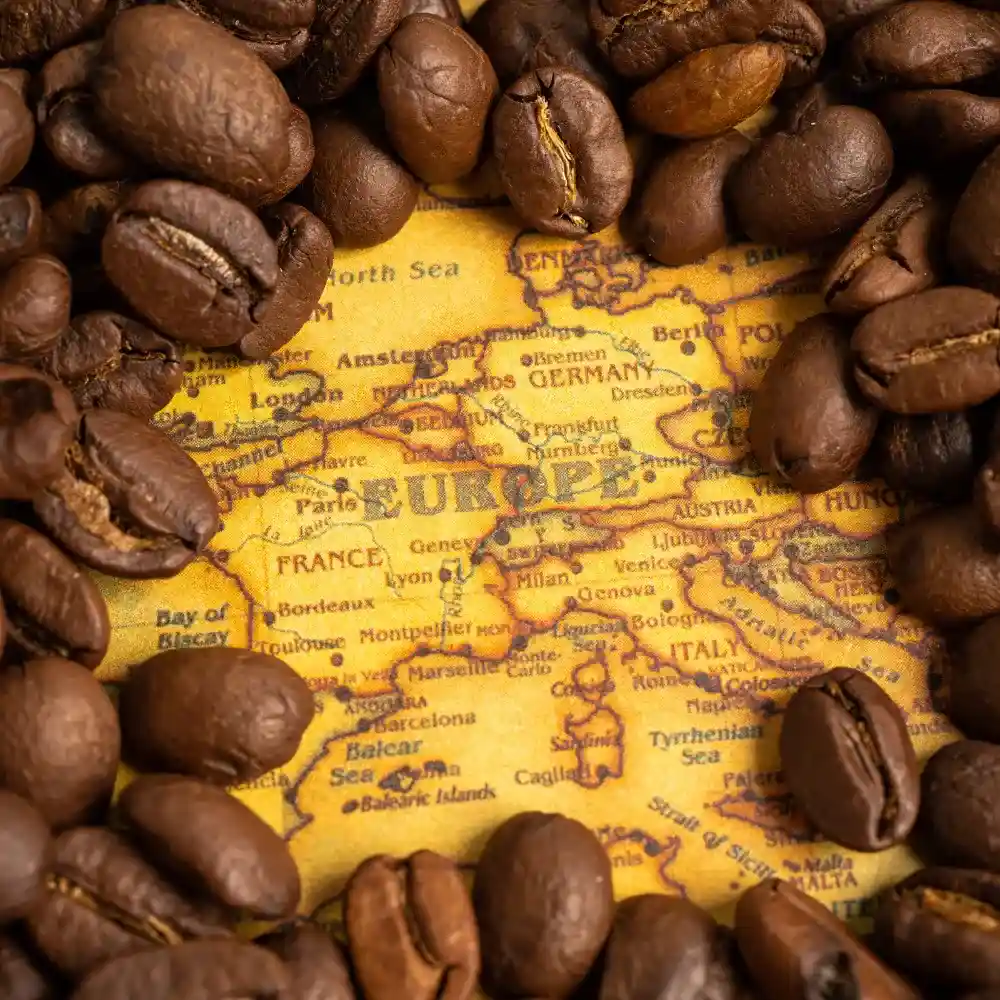
The banning of coffee is not exclusive to any one region or era, as it has been the subject of controversy across the globe. Europe, with its diverse history and culture, was no exception to the phenomenon of coffee bans, as evidenced by various episodes throughout history.
Coffee in the Crosshairs: The Papal Condemnation
One of the earliest instances of this beverage controversy in Europe was its reception by the Catholic Church. When this drink arrived in Europe in the 16th century, it was met with suspicion and deemed the “bitter invention of Satan” due to its Muslim origins.
There were calls to ban the drink, and the matter reached Pope Clement VIII. However, after tasting it himself, he found no reason for its condemnation. In fact, he ‘baptized’ the drink, saying, “We shall cheat Satan by baptizing it,” thereby marking the approval of coffee consumption among Christians.
Prussian King Frederick the Great’s Coffee Controversy
In the late 18th century, Prussian King Frederick the Great also issued coffee bans, but his motivation was economic rather than religious. He noticed that this beverage consumption was affecting the sales of beer, a local industry he wanted to protect.
In 1777, he issued the “Coffee and Beer Manifesto,” encouraging the Prussian people to consume beer over this beverage for their health and the economy. He also attempted to restrict coffee roasting to a state-controlled institution. Despite these efforts, the public outcry against these regulations was so significant that they were eventually relaxed.
Social Impact and Repeals of Coffee Bans in Europe
In many parts of Europe, coffee bans were often met with strong public opposition, demonstrating the deep cultural significance of the beverage. Coffeehouses were not just places to consume a drink but also venues for social interaction, business transactions, and intellectual discourse.
Moreover, the economic benefits of the coffee trade were significant, contributing to the repeal of many bans. Over time, despite various attempts at banning coffee, the drink’s popularity only grew, underlining its social, cultural, and economic importance.
Thus, the history of coffee bans in Europe provides a fascinating glimpse into the societal dynamics of the time. From religious suspicion to economic concerns, various factors influenced the stance on this delectable drink. Yet, in the face of all opposition, it endured and continues to be a beloved beverage across the continent.
Coffee in the Modern Era
Despite the turbulent past of coffee bans, the modern era has seen a marked shift in attitudes toward this beverage. The drink has moved away from being a subject of controversy to becoming a global favorite. However, the legacy of banning coffee still echoes in the not-too-distant past.
Coffee Prohibition in Ethiopia

Interestingly, Ethiopia, the very cradle of coffee, imposed a ban on coffee consumption prior to the 18th century. The Ethiopian Orthodox Church strictly proscribed the enjoyment of this beverage. Nonetheless, in the latter half of the 19th century, Ethiopian viewpoints experienced a transformation, and coffee drinking won acceptance. Its popularity skyrocketed between 1880 and 1886, primarily credited to Emperor Menelik, who was a personal fan of the drink, and Abuna Matewos, who was instrumental in dispelling the clergy’s misapprehension that coffee was exclusively a Muslim beverage, as cited by Richard Pankhurst. (4)
Coffee Bans During World War II
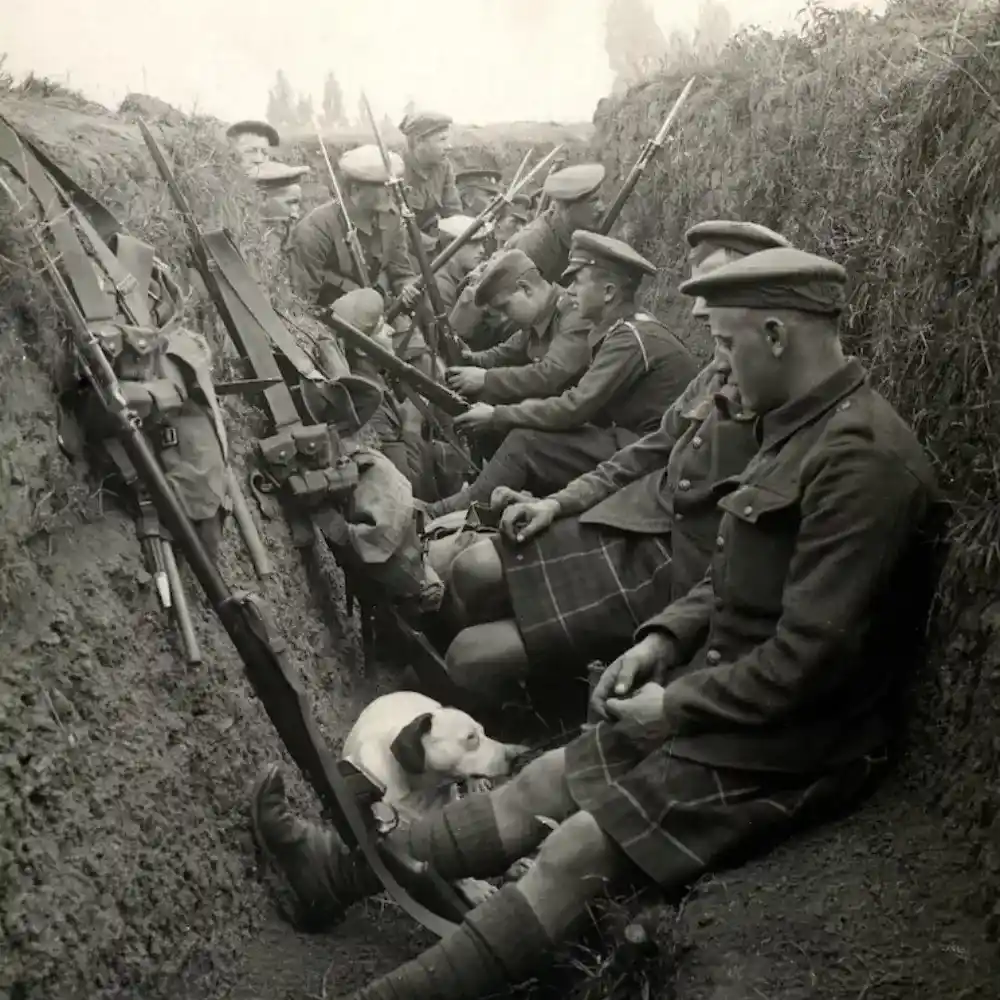
During World War II, various countries faced coffee bans and rationing due to logistical challenges and trade disruptions. This beverage, being a non-essential commodity, was often sidelined in favor of crucial war supplies.
For instance, in New Orleans, this drink was replaced with alternatives like chicory, due to severe shortages. In the United States, coffee rationing was implemented in 1942 to ensure fair distribution among the populace. However, these measures were temporary, imposed out of necessity, rather than being driven by social or political opposition to the drink.
These instances, albeit relatively recent, bear testament to the persistent allure of a cup of joe, even in the face of prohibitions and restrictions. They reinforce this beverage’s resilience and its deep-rooted place in our societies, economies, and everyday lives. Today, this drink stands tall as a universal beverage, loved by millions around the world, far from the days of bans and controversies.
Impact and Legacy of Coffee Prohibition
The history of banning coffee is not just a series of prohibitions; it has also left an indelible impact on our society and culture. From fostering the rise of decaf coffee to igniting public outcry and stimulating innovation, the legacy of coffee prohibition is rich and varied.
Rise of the Decaffeinated Movement
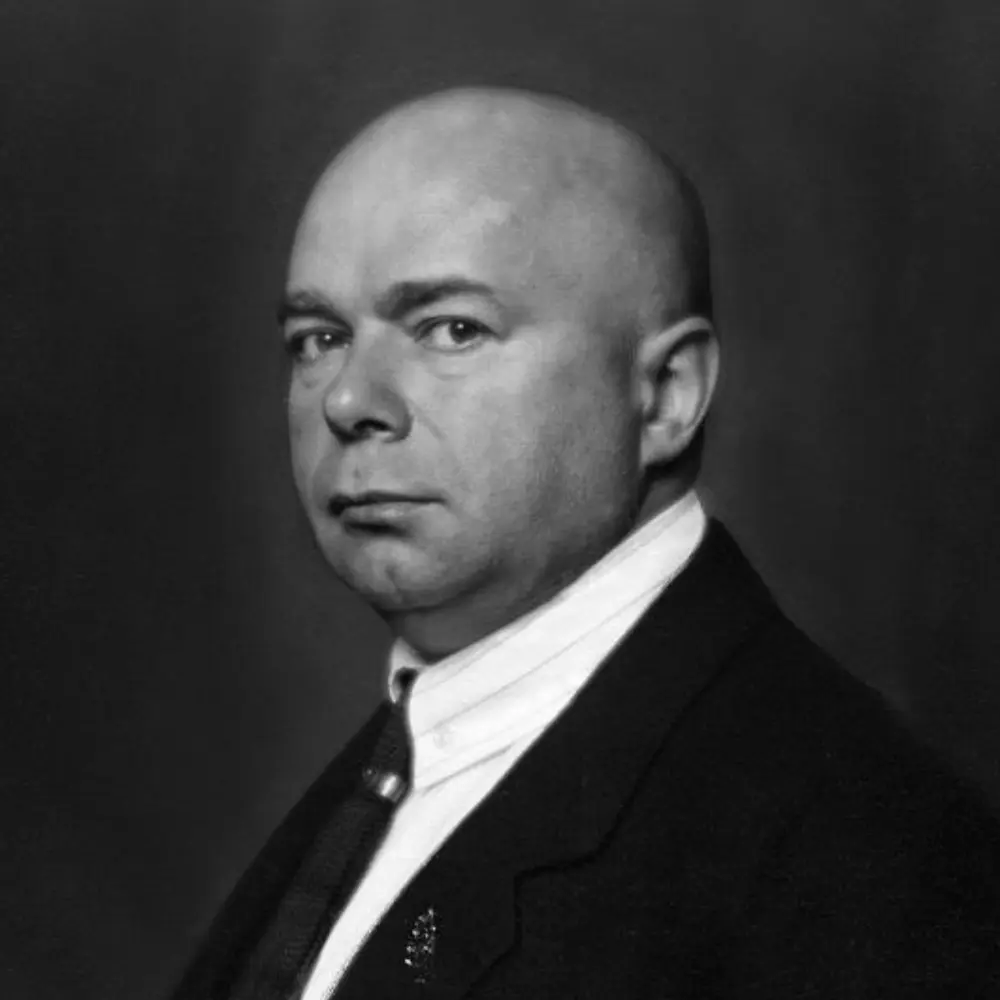
In response to health concerns associated with caffeine, the late 19th and early 20th centuries saw the rise of the decaffeinated movement. The invention of decaf coffee is attributed to Ludwig Roselius, a German merchant, and co-workers, who accidentally discovered the process in 1903. (5) His brand, Sanka, was introduced to the United States in 1923 and became a popular choice for those seeking the flavor of this beverage without the stimulating effects of caffeine.
The development and acceptance of decaf coffee can be seen as a kind of ‘soft prohibition,’ where people voluntarily choose to avoid caffeinated coffee for health or personal reasons. Today, decaf is widely available alongside regular coffee, offering an alternative for those sensitive to caffeine or avoiding it due to health concerns.
Coffee Bans vs. Public Outcry
The prohibition of coffee often led to widespread public opposition, demonstrating how deeply ingrained the beverage had become in various societies. In many cases, prohibitions and restrictions were relaxed or lifted due to strong public resistance. For instance, King Frederick the Great’s attempt to replace this beverage with beer in Prussia was met with substantial backlash, and Sweden’s numerous bans on coffee throughout the 18th and 19th centuries were all eventually repealed due to public demand.
This recurring theme of public outcry against coffee bans highlights this beverage’s societal significance. More than a mere beverage, this drink became a symbol of social interaction, intellectual discourse, and economic prosperity.
Coffee Prohibition as a Catalyst for Innovation

In times of coffee prohibitions or shortages, societies often came up with innovative alternatives. During World War II, when this beverage was rationed or unavailable, many people turned to substitutes like chicory. Some of these wartime brews have endured and are enjoyed today, like the New Orleans-style coffee that blends coffee and chicory.
In Sweden, during one of the numerous periods of coffee prohibition, a beverage called ‘svagdricka’—a weak, low-alcohol beer—gained popularity as a coffee substitute. While these alternatives did not replace this drink, they underscore humanity’s innovative spirit in the face of adversity.
To sum up, the legacy of coffee prohibition is multifaceted, leaving a lasting impact on society, culture, and industry. The enduring popularity of this delightful beverage, despite periods of banning coffee, stands as a testament to the beverage’s universal appeal and resilience.
Modern Perspectives on Coffee Consumption

The narrative of this delectable drink has greatly evolved over time. Once the subject of prohibition and controversy, coffee is now a globally endorsed and celebrated beverage. Modern perspectives on this beverage consumption reflect this transformation, highlighting the journey of coffee from an exotic novelty to an everyday staple.
The Evolution of Coffee Laws: From Prohibition to Endorsement
The history of this drink is marked by a shift in laws and attitudes. Initially met with skepticism, and even outright prohibition in some regions, coffee has overcome numerous hurdles to become a widely accepted and endorsed drink. The stringent laws of the past have given way to regulations that ensure fair trade, sustainable farming practices, and high-quality standards.
Governments, instead of banning the drink, now focus on how to maximize the economic benefits of coffee production and trade. For example, Brazil, the largest producer of coffee worldwide, has various policies in place to support the industry, aiming to ensure the welfare of farmers and the quality of their beans.
How Coffee Became a Global Staple Despite Its Rocky Past
Despite the bans and controversies that marked its history, this beverage’s journey to becoming a global staple is a testament to its enduring appeal. The process was gradual, driven by factors such as exploration, colonization, and global trade. Each society that embraced this lovely drink added its own touch, further enriching the global coffee culture.
In many societies, coffee became synonymous with social interaction. Coffeehouses emerged as places for conversation, intellectual exchange, and even political discussion. The coffee culture we enjoy today – from Italian espresso bars to American coffee chains – can be traced back to these historical contexts.
Health Perspectives: Is Coffee Good or Bad?

Health perspectives on this beverage consumption have been a subject of debate and research. Early prohibitions often stemmed from health concerns associated with caffeine, which can cause sleep disturbances and other side effects in sensitive individuals. The creation of decaf coffee in the 19th century was a response to these concerns.
However, recent research paints a more nuanced picture. Moderate consumption is generally considered safe and can even offer health benefits, such as reducing the risk of certain diseases and boosting cognitive function.
Of course, individual responses to coffee can vary, and each person needs to consider their tolerance and overall health. Today, the conversation around coffee and health is more about balance and personal choice, rather than prohibition.
To sum up, the modern perspectives on this beverage consumption reflect a dramatic shift from the past, underlining the drink’s resilience and global appeal. Despite a rocky history marked by bans and controversies, coffee has emerged as a beloved beverage, cherished in almost every corner of the world.
Coffee in Today’s Legal and Social Context
As the world’s second most traded commodity after oil, this drink commands a significant place in the modern legal and social landscape. Gone are the days of bans and prohibitions. Instead, coffee is surrounded by regulations and societal norms that underscore its economic, social, and cultural relevance.
Current Coffee Regulations Around the World
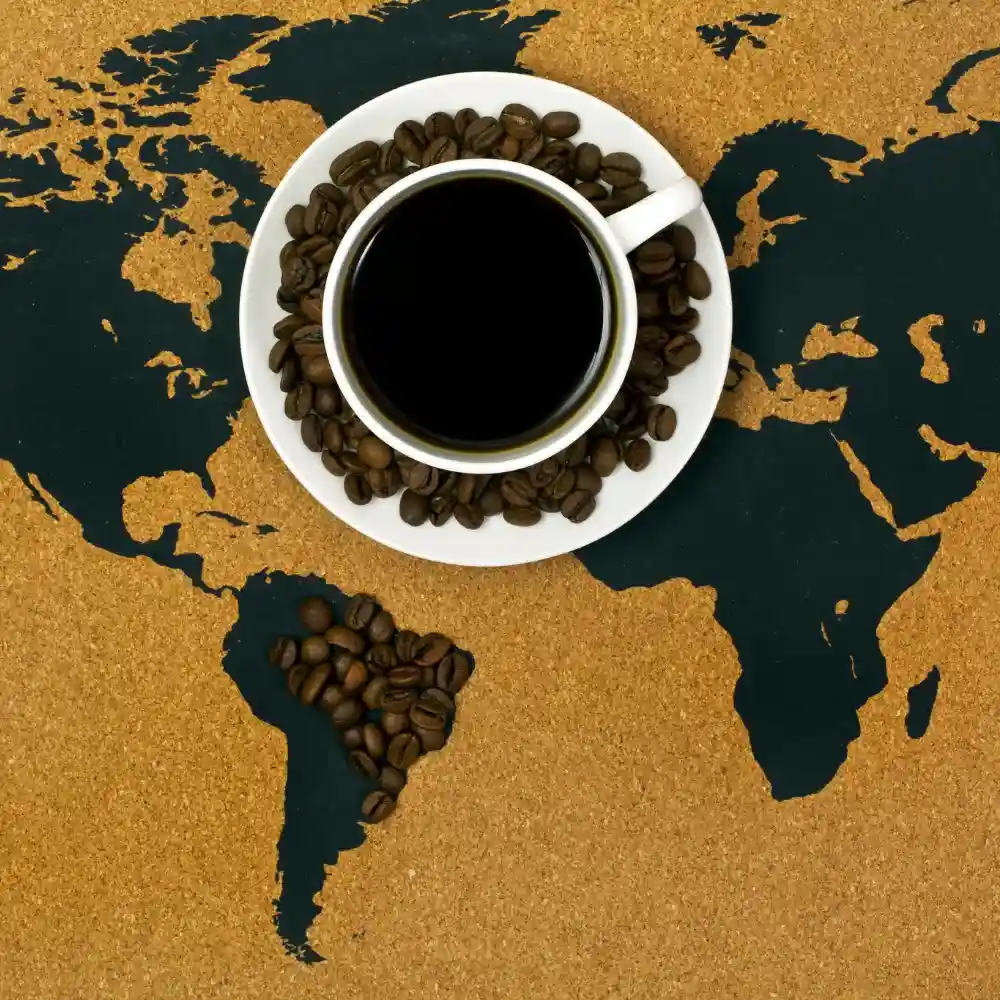
Today’s coffee regulations largely center on ensuring quality, sustainability, and fair trade. Governments and international bodies implement standards and policies that influence every step of the coffee chain, from cultivation and processing to packaging and distribution.
In Brazil, the world’s largest coffee producer, there’s a governmental institution dedicated to coffee regulation – the Brazilian Coffee Industry Association (ABIC). ABIC works to guarantee the quality and authenticity of Brazilian coffee, promoting sustainable practices and providing support for producers.
Similarly, in the European Union, there are strict regulations regarding the labeling, packaging, and advertising of this drink to ensure consumer safety and informed choice. Importantly, fair trade and organic certifications have become increasingly common in the industry, reflecting growing consumer demand for ethically and sustainably produced goods.
The Role of Coffee in Modern Society and Culture
Coffee’s social and cultural role has evolved significantly since the days of bans and controversies. Coffeehouses, once hotbeds of political dissent and intellectual discourse, are now hubs of social interaction, work, and relaxation. From Italian espresso bars and French cafés to American coffee shop chains, these spaces reflect the diverse ways societies have embraced and adapted the coffee culture.
Moreover, this beverage is central to many social rituals and customs. Whether it’s a morning cup of joe to start the day, a business meeting, or a casual catch-up with friends at a local coffee shop, the beverage is entwined with the rhythms of our daily lives.
The Future of Coffee: Potential Legal and Health Challenges
While this delectable drink has enjoyed a remarkable journey from controversy to acceptance, future challenges lie ahead. Climate change poses a significant threat to coffee production, especially for Arabica beans, which are particularly climate-sensitive. Governments and the coffee industry will need to navigate the legal, ethical, and practical aspects of maintaining coffee production in the face of changing environmental conditions.
Furthermore, health perspectives on this beverage will continue to evolve as research uncovers more about coffee’s impacts on human health. For instance, genetic research may lead to a better understanding of why individuals react differently to caffeine. This could influence health recommendations and even lead to personalized coffee products.
Overall, coffee’s legal and social context reflects its profound journey from a controversial, often prohibited beverage to a celebrated global staple. Looking ahead, this dynamic commodity will undoubtedly continue to adapt and evolve, meeting challenges with the resilience that has marked its history.
Conclusion
As we finish our journey through the riveting history of coffee prohibition, it’s clear that the answer to the question, “was coffee ever illegal?” is a resounding yes. From Mecca to Sweden, and from Ethiopia to the Ottoman Empire, this beverage has faced bans and prohibitions across different eras and cultures.
These attempts at banning coffee, however, have done little to dampen its global popularity. Instead, they’ve added depth to the rich tapestry of this drink’s history and have underlined its resilience. Today, rather than facing bans, this drink is embraced for its cultural, social, and economic significance, and it remains one of the most widely consumed beverages worldwide.
Navigating through the ebbs and flows of social acceptance, political pressure, health concerns, and commercial interests, this beverage has emerged as more than just a drink. It’s a symbol of endurance, a testament to globalization, and a catalyst for social interaction and economic growth.
The history of the coffee ban offers a fascinating study of how societal norms, laws, and trends evolve over time. As we sip our morning brew or enjoy a cup of joe with friends, it’s intriguing to think of the tumultuous journey this humble beverage has undertaken to secure its place in our mugs and our lives. While this beverage’s past was marred by prohibition, its future seems rich, robust, and as invigorating as the drink itself.
FAQ
Why did some countries ban coffee?
Countries banned coffee due to various reasons, from religious and political concerns to health apprehensions and social control.
How did coffee bans impact society?
Coffee bans often led to significant public outcry, and illicit trade, and even prompted the innovation of alternatives like chicory coffee and decaf.
Which countries currently have coffee prohibition?
As of now, there are no countries that legally prohibit this drink.
Did coffee prohibition lead to the rise of alternative beverages?
Yes, prohibitions led to the rise of alternatives like chicory coffee in France and the increased popularity of beer in Sweden
Why was coffee banned in the Ottoman Empire?
This beverage was banned in the Ottoman Empire due to concerns over its stimulating effects and the perceived political discussions it encouraged in coffeehouses.
How did the Papal Condemnation affect coffee consumption in Europe?
Pope Clement VIII's endorsement, rather than condemnation, increased this beverage's popularity and acceptance in Europe.
What was the Prussian King Frederick the Great's stand on coffee?
Prussian King Frederick the Great discouraged this drink consumption in favor of beer to protect local industries and public health.
How has the legal status of coffee evolved over the centuries?
This beverage's legal status has evolved from bans and restrictions to acceptance and regulation, reflecting changes in societal norms, knowledge, and economic interests.
What are the current regulations on coffee around the world?
Current regulations focus on quality control, sustainability, fair trade, and consumer protection, varying by countries and their industry's scope and nature.



